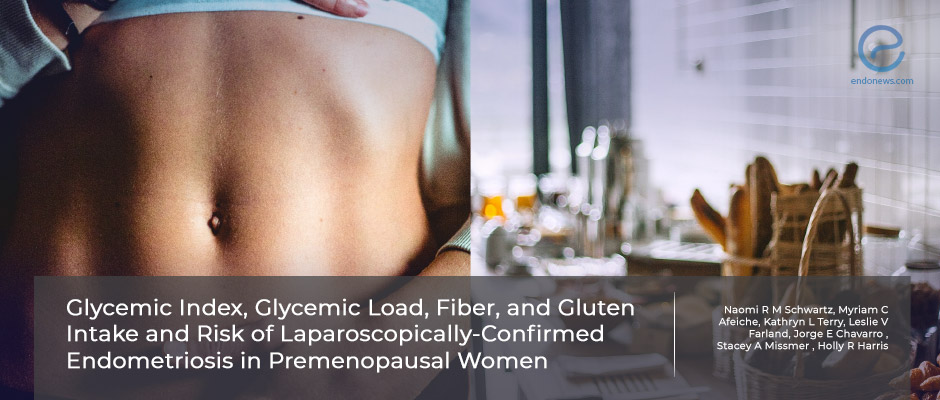Gluten Intake May Not Have an Effect on Endometriosis
Aug 31, 2022
More research is needed to clarify the effect of diet on the risk and severity of endometriosis.
Key Points
Highlights:
- There does not seem to be a direct link between gluten intake and endometriosis.
- Carbohydrate quality and certain types of fiber are associated with endometriosis.
Importance:
- Identifying the link between dietary intake and endometriosis can ensure better recommendations are developed.
What's done here:
- Researchers conducted a prospective cohort study using data from the Nurses’ Health Study 2.
Key results:
- Women with the highest glycemic index have a higher risk of being diagnosed with endometriosis compared to those with the lowest glycemic index.
- A higher total and cruciferous vegetable fiber intake is associated with a higher risk of endometriosis.
- There is no statistically significant association between total, fruit, legume, and cereal fiber, and gluten intake, or glycemic load and endometriosis.
Limitations:
- Dietary data were retrospectively collected only one year before a diagnosis of endometriosis. However, women may have changed their diet in this period due to their symptoms.
- The study did not take into account factors such as previous pregnancies and the age at which women had their first period, which are factors associated with endometriosis risk.
- All data is self-reported and may therefore contain errors.
Lay Summary
Carbohydrate quality and certain types of fiber such as total vegetable and cruciferous vegetable fiber seem to be associated with endometriosis in women before menopause, found a new study published in the Journal of Nutrition. According to the study, it is unlikely that the intake of gluten has a strong effect on the cause and symptoms of the disease.
The exact cause of endometriosis is not known. However, there are many factors that are likely related to the development of the disease. Diet is one such factor although the exact link between carbohydrate, fiber, and gluten intake and endometriosis is not clear. Despite this, there are many recommendations about dietary intake.
In the present study, a team of researchers led by Dr. Holly R Harris investigated the link between carbohydrate quality and fiber and gluten intake and laparoscopically confirmed endometriosis.
The researchers collected data from 81,961 women in the Nurses' Health Study 2 who did not yet enter menopause. The women’s diet was assessed every four years using a validated food frequency questionnaire.
During a 24-year follow-up period, 3,810 women had laparoscopically confirmed endometriosis.
The researchers found that women who had the highest glycemic index had a 12% higher risk of being diagnosed with endometriosis compared to women with the lowest glycemic index.
A higher intake of total and cruciferous vegetable fiber was also associated with a higher risk of an endometriosis diagnosis.
On the contrary, higher fruit fiber and gluten intake were associated with a lower risk of endometriosis. However, this association was not statistically significant. There was no association between glycemic load, and the intake of total fiber, legume, or cereal fiber and endometriosis.
“ (…) these results underscore the role of gastrointestinal symptoms in the diagnosis of endometriosis,” the researchers concluded. They added that future research focusing on abdominal pain and other gastrointestinal symptoms could provide important information about the association between different types of fiber and gluten and endometriosis.
Research Source: https://pubmed.ncbi.nlm.nih.gov/35554558/
diet endometriosis diagnosis gluten fiber carbohydrate

